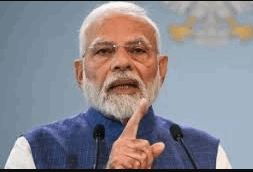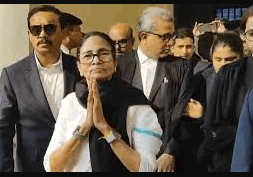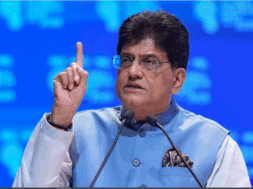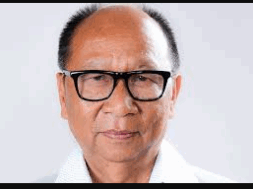
SC Dismisses Plea to Mandate Doctors to Give List of Side Effects to Patients of Each Drugs Prescribed
Manas Dasgupta
NEW DELHI, Nov 14: Coming to the aid of the medical professionals, the Supreme Court on Thursday dismissed a plea seeking a direction to mandate doctors to specify to patients all kinds of possible risks and side effects associated with a drug being prescribed to them.
“It is not practical,” said a Bench of Justices B.R. Gavai and K.V. Viswanathan while rejecting the petition challenging the Delhi High Court’s May 15 order which had earlier dismissing the petition.
Advocate Prashant Bhushan, appearing for petitioner Jacob Vadakkanchery, said the plea raises an important issue as to whether the doctors should be obliged to inform their patients about the possible side effects of medicines they are prescribing. The Bench observed a general practitioner may not be able to cater to more than 10 to 15 patients a day if this was followed and then there may be cases under the Consumer Protection Act.
“It will help in avoiding consumer protection cases of medical negligence,” Mr Bhushan claimed adding that it would be easy for the doctors to have a printed proforma about the possible side effects of the drugs being prescribed. The Bench observed a doctor may be prescribing different medicines to different patients.
Mr Bhushan contended that the World Health Organisation (WHO) has said about harm to patients due to incorrect medicines being prescribed. The Bench observed that doctors are unhappy with the Supreme Court verdict which brought the medical profession within the ambit of the Consumer Protection Act. “Sorry,” the Bench said while dismissing the plea.
The plea in the High Court had sought directions to the Centre and the National Medical Commission to mandate all medical professionals practising in the country to specify to a patient (in the form of an additional slip in the regional language) along with the prescription, all kinds of possible risks and side effects associated with a drug or a pharmaceutical product being prescribed.
The petitioner had stated that patients have a right to make an informed choice and it should be mandatory for the doctors prescribing the drugs to explain the side effects attached to consuming such medicines to the patient. The petitioner had told the High Court that upon being made aware of the side effect of the drug being prescribed by the doctor, the patient would be able to make an informed choice whether to consume it or not.
“The petitioner does not dispute with respect to the sufficiency of the information supplied by the manufacturer through the insert provided with the drug at the time of sale by the registered pharmacist,” the High Court had noted. “Since the legislature in its wisdom has elected to impose this duty on the manufacturer and the pharmacist, we do not find any ground for issuing a direction as prayed for in this PIL as it would amount to judicial legislation,” the High Court had said.
The Supreme Court had earlier indicated the need for revisiting its 1995 decision to hold medical professionals accountable under the Consumer Protection Act, 1986, after it rejected a plea to bring the advocates under the act for any deficiency in services. The court had felt that the definition of the term ‘services’ under the Act, which includes the medical sector, be re-examined. The issue will be placed before a larger Bench, should doctors, like lawyers, be kept out of the Consumer Protection Act.
The opinion on the issue is divided but many experts felt that a review of the 1995 decision would give a better explanation of the word “service.” The 1995 case Indian Medical Association vs VP Shantha was a landmark case which decided that doctors, medical professionals, and hospitals do come under the Consumer Protection Act as service providers. Doctors are highly qualified professionals who provide a service to the people. They are highly specialised. This cannot be equated with any other [profession] because human bodies react differently in different situations. A lot of work and research goes into medical practice. Many surgeries are high tech. Patients have to be carefully taken care of, many experts believe.
Many people also try to misuse the Act. They don’t want to pay the doctor’s fee or the hospital fee. They create a ruckus and file a case under the Consumer Protection Act. This turns into a harrowing experience for doctors and hospitals. When things go well, a patient is happy, but when things go wrong, the patient blames the doctor and the hospital. This is dangerous. Doctors order a bunch of medical tests to protect themselves against these complaints. And that increases the cost of procedures. Everything has to be on record, so that if there is a dispute, they can prove that they were correct in doing whatever they did.
The present government at the Centre has also not provided any relief to the medical practitioners in this regard. The amended Bharatiya Nyaya Sanhita Bill (BNSS) did not provide a blanket exemption to doctors in cases of death due to negligence; instead, it has prescribed a maximum two-year imprisonment in such cases, slightly lower than the punishment for other cases.
The amended Section 106 (1) of the Sanhita says: “Whoever causes death of any person by doing any rash or negligent act not amounting to culpable homicide, shall be punished with imprisonment of either description for a term which may extend to five years, and shall also be liable to fine; and if such act is done by a registered medical practitioner while performing medical procedure, he shall be punished with imprisonment of either description for a term which may extend to two years, and shall also be liable to fine.”














